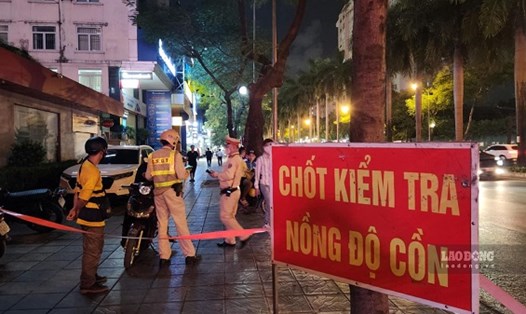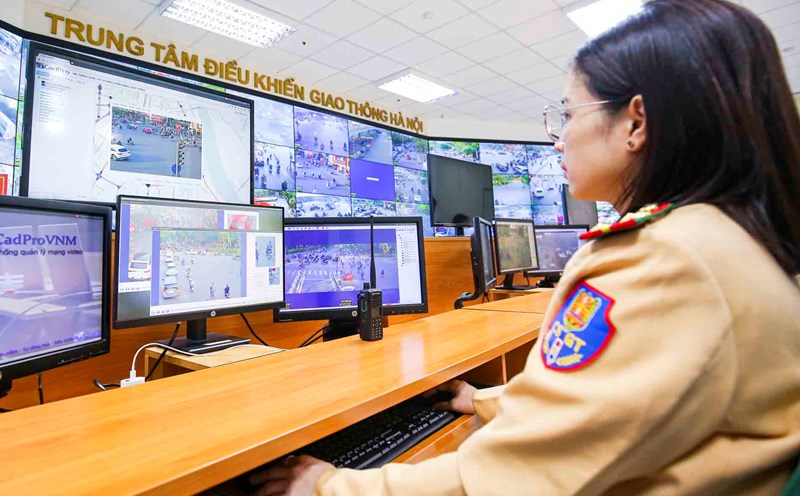
The Ministry of Public Security has just issued Circular 73/2024 regulating patrolling, controlling and handling violations of road traffic order and safety, effective from January 1, 2025.
Article 6 of the circular stipulates the organization of forces to directly patrol and publicly control road traffic routes, set up traffic checkpoints at a point on the road, at traffic police stations according to the plan that has been issued and issued by competent authorities.
"In case of setting up a checkpoint at a point on a traffic route, the location and road surface must be wide, open, not obstructing the view and in accordance with the provisions of the law on road traffic order and safety, road laws and related laws" - Article 6 of Circular No. 73/2024 states.
When organizing a control force at a point on a traffic route, at a Traffic Police Station, it is necessary to use a camera equipped to record the control activities of the Traffic Police Team. Control at night must have lighting and ensure adequate lighting.
From there, the authorities can stop vehicles, control, detect and handle violations of laws on road traffic order and safety and other violations within their authority.
Sharing with Lao Dong, Architect Tran Huy Anh - Standing Member of the Hanoi Architects Association said that setting up checkpoints and observation posts in open spaces with unobstructed views will bring positive benefits to urban aesthetics.
"When the authorities set up checkpoints to check traffic violations, they are performing the task of preventing crime and ensuring safety for people participating in traffic, so they should not set up checkpoints in dark and temporary areas. This not only affects the quality of patrols and handling of violations, but also spoils the urban beauty.
However, setting up checkpoints according to new regulations also requires research and consultation with experts to select appropriate checkpoint areas to avoid causing disruption and affecting traffic conditions around the area," said architect Tran Huy Anh.
Regarding the regulations on the use of cameras equipped to record the control activities of the Traffic Police Team,

Dr. Phan Le Binh - traffic expert of Japan International Cooperation Agency (JICA) said that this is one of the useful solutions to resolve disputes during patrols.
"During the inspection and handling process, it is inevitable that there will be controversial cases due to traffic conditions as well as the time of violation, so having video recording data will be evidence to help the authorities handle the case easily.
Soldiers are equipped with cameras to record the inspection and punishment process to ensure transparency and avoid negativity" - Dr. Phan Le Binh shared.
However, for the new regulation to be effective, JICA's traffic expert also noted that the authorities still need to have measures to manage the recording during the violation handling process. At the same time, before applying the circular, it is necessary to solve problems such as: what equipment to use to ensure stable recording quality?; where is the data saved?; how to manage?; what will be done if officers arbitrarily delete recorded data?;...











